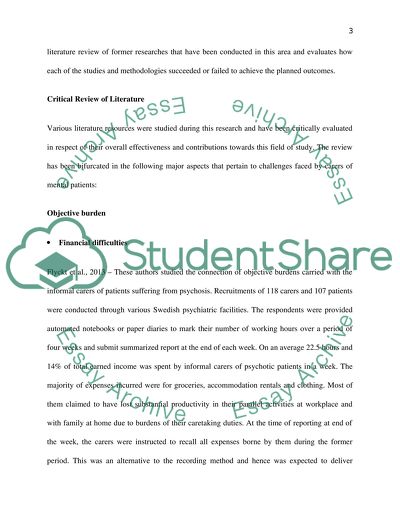Cite this document
(“The challenges of carers for people with serious mental illness Literature review”, n.d.)
Retrieved from https://studentshare.org/sociology/1482670-the-challenges-of-carers-for-people-with-serious
Retrieved from https://studentshare.org/sociology/1482670-the-challenges-of-carers-for-people-with-serious
(The Challenges of Carers for People With Serious Mental Illness Literature Review)
https://studentshare.org/sociology/1482670-the-challenges-of-carers-for-people-with-serious.
https://studentshare.org/sociology/1482670-the-challenges-of-carers-for-people-with-serious.
“The Challenges of Carers for People With Serious Mental Illness Literature Review”, n.d. https://studentshare.org/sociology/1482670-the-challenges-of-carers-for-people-with-serious.


